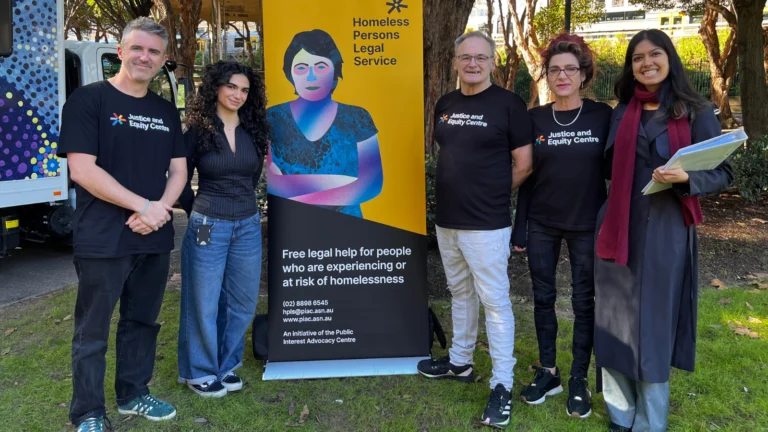The Public Interest Advocacy Centre (PIAC) has cautiously welcomed media reports the so-called ‘Folau clause’ has been dropped from the Commonwealth Government’s planned Religious Discrimination Bill.
However, those same reports have confirmed that much more serious problems with the Bill – including extraordinary ‘statement of belief’ and religious exception provisions – remain.
‘It is disappointing that the Commonwealth Government seems determined to push ahead with legislation that will undermine the rights of women, LGBTI people, people with disability, and even people of minority faiths,’ PIAC CEO Jonathon Hunyor said.
The ‘statement of belief’ provisions in the 2nd Exposure Draft Bill overrode all other Commonwealth, state and territory anti-discrimination laws, including the Fair Work Act. They protected comments that ‘offend, humiliate, intimidate, insult or ridicule’ others where those comments are motivated by religious belief.
‘If replicated in the final Bill, these statement of belief provisions will encourage derogatory and harmful comments against everyday Australians, on the basis of who they are, in all aspects of everyday life,’ PIAC Policy Manager Alastair Lawrie said.
‘In seeking to override state and territory laws, the statement of belief provisions are entirely unprecedented, and will make parts of the state and territory anti-discrimination framework effectively unworkable,’ Alastair Lawrie added.
The religious exceptions contained in the 2nd Exposure Draft Bill were also serious departures from existing provisions of Australian anti-discrimination laws, including that they:
- Applied tests which are much, much easier for religious organisations to satisfy than existing laws;
- Covered a broader range of organisations, which do not need to have been ‘established for a religious purpose’ (the current requirement under the Sex Discrimination Act); and
- Allowed religious hospitals and aged care services to discriminate in employment on the basis of religious belief, rather than ability.
‘Throughout multiple Exposure Draft processes, the Government has never adequately justified why religious exceptions to anti-discrimination laws should be expanded in such an extraordinary and unprecedented manner,’ Jonathon Hunyor said.
‘These special privileges should be carefully crafted, not an invitation to religious organisations to shut their doors to others,’ Mr Hunyor added.
Finally, PIAC supports calls for the final Religious Discrimination Bill to be subjected to a thorough Senate inquiry.
‘Any anti-discrimination law which has the potential to affect the lives of every Australian, and every Australian community, deserves the highest level of scrutiny. That must include a Senate inquiry,’ Alastair Lawrie concluded.
MEDIA CONTACT: Gemma Pearce, PIAC Media and Communications Manager: 0478 739 280

